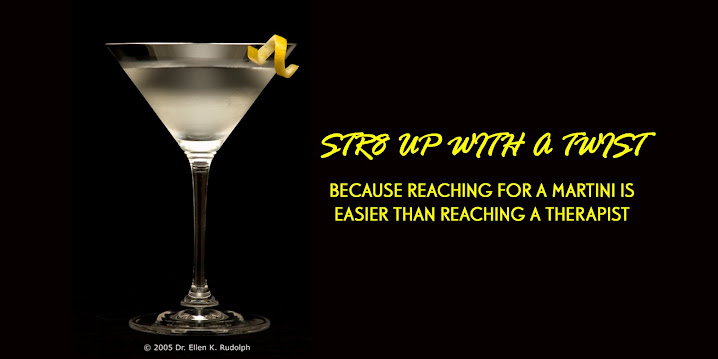I couldn't decide if I should give this @sshole more exposure but I figure if any runners are reading this they need to see this.
I have run marathons and when I pay my money (and we're not talking just $20) I expect the race director to provide some type of support.
This was the 30th running of the Chicago Marathon and it was the 17th for the race director. Surely (and don't call me Shirley) there was some type of contingency plan in place? Guess not.
Yes, we are responsible for our own actions & decisions and should take precautions. However, if I pay $100+ for a run I expect something in return for my money...water? Gatorade? Planning for the unexpected?
In my mind I have composed an email to Mr. Downey. It will be well thought out just like my email to Anne Rice when she said "Americans have turned their back on New Orleans..."
If you are so inclined to get in touch with Mr. Downey, his email address is included in the column.
Nobody forced anyone to run
Marathoners can blame only selves
Mike Downey mikedowney@tribune.com
October 9, 2007
Hey, don't blame the city of Chicago if you were too tired and too hot Sunday while running a marathon.
And don't blame sponsor LaSalle Bank if you were weak from thirst and couldn't get enough to drink.
You've got nobody to blame but yourselves.
If you are foolhardy enough to run a marathon when the temperature outdoors is up to 88 degrees, then it is your fault, no one else's.
Nearly 10,000 of the people who filed entries for this 30th annual race were smart enough not to run it.
It is as idiotic to run more than 26 miles in a brutal and potentially lethal heat as it is to play golf in a thunderstorm.
No one made you run. No one bought tickets to see you compete, so you were under no obligation.
This wasn't a football game, where paying customers have a right to expect athletes to play whether it is in 100-degree heat or in fog or snow.
Of the 45,000 who intended to take part in the city's marathon, only 35,867 actually showed up to run.
The ones who did not showed good sense.
Some of the premier runners needed to go out there because this is how they make a living, competing for prize money.
Marathon running for them is an occupation, not recreation.But thousands of others run because it is fun to run.
Or because you train for a race for a long time and you look forward to being there.Chicago's temperature soared nearly to a tropical 90, yet those of you who ran ignored the risks.
You knew the pavement would be sizzling like a griddle.
You knew a long run on a day like this would be hard on your feet, legs, stomach, mind and heart.
You ran anyway.
The city just as easily on an October morning could have had lightning bolts in the sky, or a torrential rain, or a blizzard.
Chicago has had many an October day when the thermometer has read 8 instead of 88.
On such a day, you would have looked at the forecast on TV or in your newspaper, then looked out your window and said, "Not today, man.
"Nevertheless, 35,867 of you hit the streets for this race.
And only 24,933 were able to finish it because Chicago began running short of drinking water, ambulances, paramedics, doctors, volunteers, good Samaritans and cops.
There were tragic results.
A young man died, an off-duty police officer from Michigan.
At least 300 others reportedly had to be rushed to hospitals and first-aid tents.
"They didn't plan for it," one runner harped about Chicago's race authorities.
"They clearly weren't prepared," another said on TV.
Wrong.Totally wrong.
"They," the marathon organizers, cautioned runners all week long that the temperature for Sunday was going to be hot. Not "unseasonably warm" -- hot.
They begged runners to take extra precautions.
They stocked more than 200,000 more servings of water than usual.
They made as many of the necessary preparations as possible.
But when 35,000 people jump off a ledge, you can only catch so many in safety nets.
The rest are going to fall.
This is a professional competition that the public sometimes confuses with a company picnic.
The runners who staged a neck-and-neck finish -- Patrick Ivuti and Jaouad Gharib for the men, Berhane Adere and Adriana Pirtea for the women -- were here to win, not merely to run.
For the rest of you, did the words "hottest day in Chicago's 30-year race history" not even register?
How many of you ran at your normal pace or faster, totally at your own peril, caught up in the thrill of the chase?
Were you among the first to crab later about how the race let you down?
By the time officials put a premature stop to this 8 a.m. race at about 11:35, had it not yet dawned on you that maybe you should already have walked off the course and lived to run on it another day?
"They ought to move it to a later date," one runner whined on TV.
Yeah, how about November next time?
Then you could run it in a blizzard and blame Chicago for your case of frostbite.
Sympathy for the fallen is fine, but the sponsors weren't responsible for making them run.
No one stages a 26.2-mile race for 45,000 people and guarantees, "Oh, by the way, you'll all be fine.
"Marathons are not for the faint of heart.
You run in one, you take your chances.
If the water supply runs short, here's a helpful hint: Stop running.
It's just a race.
Don't die for it.
Congratulations to the winners and the survivors.
You signed up to be in a long, hard run? You got one.






















No comments:
Post a Comment